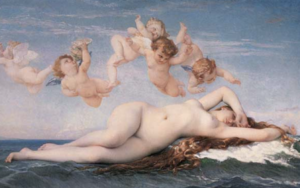Climbing the ladder of age discourages spontaneity. Maturity is often expressed as taking seriously shallow subjects and events; pretending one understands what one does not; sowing envy to cultivate unnecessary suffering where inspiration would be the more productive; punishing genuineness with insecurities because we see plots against us where none exists and we must have what others have, even when we have no need, use or want of it––without suffering any of the conditions they have endured to achieve it. All in all, that which we termed a matured person, today, is often one who is very frightened of her own shadow and for whom life is a tedious pretension of hiding confusion and fear. The matured persons of today deem it necessary to hide uncertainty and ignorance behind intelligent facades because the worst thing there is, is to appear a fool or to be seen or taken for an idiot. Thus many grown-ups do not sleep very well. But as I spend more time with children, as a teacher, I am constantly reminded that at a younger age we are unconsciously more matured in our freedom and self-confidence than in adulthood. To be able to wear your heart on your sleeves and to face what you feel despite the fear of wounding your own ego or another’s generates the ability to communicate feelings and thoughts as clearly as possible which is helpful in bridging the hellish sea of misunderstanding within ourselves and our circles of ties. Efforts toward achieving this end of freedom in self can be made through what I am terming mindful spontaneity: the practice of letting go while simultaneously becoming an observer and a student of one’s self.
The person who is better synchronized with his intuition and subconscious is more genuine in action as he neither overthink or second guesses himself. He is thus spontaneous in his happiness and pain. For to act spontaneously is to act freely; to be true to the moment and to not be at the mercy of conflicting imaginations that forecast upheavals of consequence. But innocence in the matured person is guarded for its childishness is embarrassing; though we prefer to say, misunderstood and needs protection from the cruelty of the real world. Yet, surely, it is only when the innocent-self joins hands with the experienced-self that one can bore into the genuine-self, practice genuine happiness and achieve real self-growth. Through this lens, as long as innocence is barred, the matured-self is actually immature. How is a being matured if one portion of it is fearful of another aspect of itself? Should not the inexperienced-self and the experienced-self be cohorts in order to achieve a united-self? And what is spontaneity if not that which lures the subconscious to consciousness through trust? Hence could not the spontaneous action be used as an exhibition that exhorts the strengths and weaknesses of the experienced and inexperienced states to be observed and meditated on so to understand the ways in which the self is united or divided against itself? For what does spontaneity issues if not an exposure of self? Clearly, the maturity I am concerned with is a metaphysical one. Thus its concern is to be able to learn and therefore it is invested in going deeper into knowing and comprehending the genuine and separating it from the false––presence.
To allow one’s naivety room to breathe in environs which are cruel to such attitude is painful but all the same a necessity because one must sleep, and one must sleep well; and one must walk down the street with a happy heart, a lighter head and lighter steps. Yes, they will judge you. But in a sense they are you and are only afraid for you. Besides judgement is necessary for better discernment and better decision making. It is not what others think of us that should be the lullaby that lulls us to sleep but what we think of ourselves. One is more likely to sleep better if one likes oneself than if the world thought well of us while we can’t even endure our own beings. And this is why you wear your heart on your sleeve in spontaneous action. It helps you see the ways in which you too are sick so you can find ways to cure yourself; in teaching you of your own shortcomings you are able to relate better with others: you begin to see in the wickedness of others, your own selfishness; in others acts of unfairness, your own fears. To be spontaneous is to be vulnerable. To practice mindful spontaneity is to give yourself the right to to be vulnerable and to learn from it. Yes, we are taught and one could even say, programmed to be afraid of vulnerability. But don’t you want to know why? Don’t you owe it to yourself to see if there is indeed anything to fear? And besides what happens when you overcome a fear? They still say what doesn’t kill us makes us stronger.
—
J. A. Odartey



